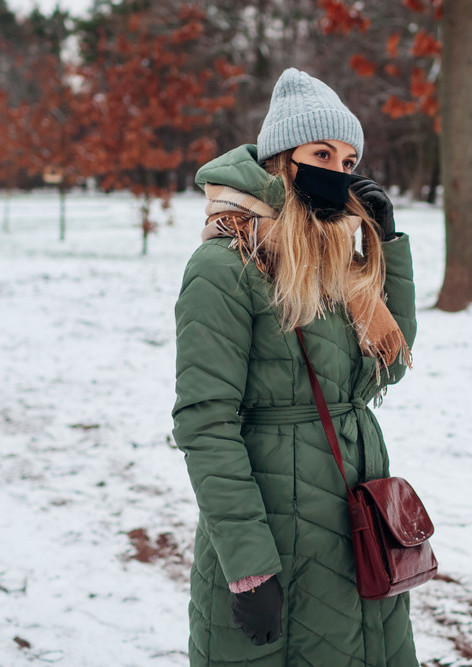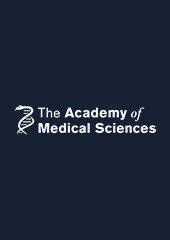A lethal triple mix of COVID-19, influenza, and the respiratory virus Respiratory Syncytial Virus (RSV), could push an already depleted NHS to breaking point this winter unless we act now, says a new report released today [Thursday 15 July].
The report* from the Academy of Medical Sciences brought together 29 leading experts alongside 57 members of the public** at the request of the Government Chief Scientific Adviser to forecast the greatest risks to health this winter. They include:
- A potential surge in respiratory viruses could cause widespread ill health and put pressure on the NHS. New modelling carried out for the report suggests this winter influenza and RSV hospital admissions and deaths could be two times that of a ‘normal’ year and could coincide with an increase of COVID-19 infections, and their associated long-term consequences.
- Dealing with the current third wave of COVID-19, as well as multiple subsequent outbreaks, between summer 2021 and spring 2022, meaning the NHS cannot catch up with the backlog of routine care.
- The NHS is already under pressure, and so is likely to be less able to cope with extra winter health challenges. Before the pandemic, winter bed occupancy in the NHS regularly exceeded 95%. This year the NHS will also be operating with a reduced number of beds because of infection control measures. The report also highlights that the NHS is reporting a shortage of nearly 84,000 staff, and a shortage of 2,500 GPs. Staff fatigue and burnout will also be a challenge.
- Worse physical and mental health in the UK population – including that due to delayed diagnosis and treatment and other impacts of the pandemic – could lead to even higher rates of conditions such as asthma, COPD, heart attack and stroke this winter.
Professor Sir Stephen Holgate FMedSci, Chair of the Expert Advisory Group, said:
“Despite a highly successful COVID-19 vaccine campaign, the pandemic is not over yet. The message from our report is clear – COVID-19 is still with us and remains a threat to our health both directly and indirectly. All parts of society need to take action to head off the serious health risks we are facing now, and in the future.”
The report urges policy makers and the NHS to prepare now for a challenging winter, and is calling for:
- Expanding COVID-19 testing to include influenza and RSV. Fast test results would allow doctors to distinguish quickly between illnesses, treat where appropriate with antivirals against flu, and spot trends.
- Increasing the speed and uptake of COVID-19 vaccination now, alongside preparations for delivering booster vaccines if needed, alongside flu vaccines for everyone eligible in the autumn.
- Financial - and other - support to be strengthened urgently to make it easier for ALL people to self-isolate when they are infected with COVID-19, to reduce the spread of the virus.
- Super charging the NHS by bringing in new staff, increasing bed numbers and capacity in primary care, improving infection control, ensuring equitable access to long COVID clinics, improving access to mental health services, reducing the backlog of routine care and increasing testing capacity for flu and COVID-19.
- Government to give clearer and more accessible guidelines about the precautions the public can take to protect themselves and those around them from COVID-19, such as wearing face coverings in crowded indoor spaces, physical distancing and minimising transmission when infected.
- Greater involvement of patients, carers and the public in planning for, and developing communications about, future health risks.
Professor Azra Ghani FMedSci, Expert Advisory Group member, said:
“It is very difficult to predict the course of the pandemic this winter. We do not know how people will react to relaxing restrictions and the impact this will have on transmission, how long the COVID-19 vaccines will provide immunity for, or what new disease variants may emerge.
“Our modelling suggests a summer peak of COVID-19 infections with subsequent local outbreaks over winter – though we can’t completely rule out another winter wave. Whilst we expect the peak in deaths to be considerably lower than last winter, under some scenarios we could see hospital admission rise to similar levels. Furthermore, with a high level of virus circulating in the community there is a risk that the number of people living with long COVID could double.
“Our modelling of a reasonable worst-case scenario also shows we could be dealing with around twice the levels of influenza and RSV this autumn and winter, causing widespread ill health and even greater pressures on the NHS.”
A surge of respiratory viruses, including flu and RSV, could be more likely because the UK population had limited exposure to these viruses last winter. Flu, RSV and other respiratory viruses that are likely to circulate at higher levels this winter share the same symptoms as COVID-19, so it is important to have tests to distinguish between them to provide best treatment.
Between 15,000 and 60,000 people could die from influenza this winter according to new modelling for the report, though the planned widespread flu vaccination should help to reduce this risk. The report is calling for measures to make sure that everyone who is eligible for a flu vaccination gets vaccinated, and for wider use of testing and antivirals to treat influenza for the most vulnerable, and those who become particularly ill.
The pandemic has had a disproportionately negative impact on people from poorer or disadvantaged backgrounds, minority ethnic groups and deprived regions. The report urges that all efforts to address the pandemic and the UK’s recovery must look to stop and reverse the unequal impacts of COVID-19 on health and wellbeing.
Professor Dame Anne Johnson PMedSci, President of the Academy of Medical Sciences and Expert Advisory Group member said:
“Maximising COVID-19 vaccination uptake needs to remain a major priority in our fight against the impacts of the virus. The NHS must keep on delivering vaccines on a very large scale now, as well as preparing for a possible COVID-19 booster campaign and widespread programme of flu vaccination for those eligible this autumn.
“The Government is right to stress that, despite restrictions easing, we must still isolate when we have COVID-19 symptoms.
“Staying at home when ill and getting tested is the number one way of preventing the spread of COVID-19. We are calling on the Government to urgently strengthen the financial and practical support that will allow ALL people to self-isolate if they need to, whatever their circumstances.
“We are moving into a new and uncertain era as society opens up. We are all going to have to make decisions about what risk we are prepared to live with – and we need to empower people with clear information and support to do this. When rates of COVID-19 are high, physical distancing and wearing face coverings in crowded indoor spaces alongside working from home when possible are sensible measures that will also protect us from other respiratory viruses this winter. We all need to do our bit to protect each other.”
Lynn Laidlaw, Co-chair of the Patient and Carer Reference Group** and Expert Advisory Group member said:
“It is very hard to hear that the pandemic is not over and there is a difficult winter ahead of us, especially as restrictions are easing.
“We are calling on leaders in national and local governments, research institutions and healthcare organisations to listen to those who are most affected by the pandemic when preparing for the winter challenges ahead. Involve us in your decision making, let us help you communicate with people about the choices they have, and let us help prioritise where resources go. We urge you to work closely with the public and their communities to make sure everyone can protect their mental and physical health – and that of their loved ones.”
-ENDS-
Read the Academy policy project page for this report.
Notes for Editors
*The report, ‘COVID-19: Preparing for the future, looking ahead to winter 2021/22 and beyond’ is available to download here, and the public summary of the report is here.
** The deliberations of the Expert Advisory Group were informed by a Patient and Carer Reference Group with 13 members, whose views and discussions underpinned our guidance on priorities and concerns for winter 2021/22 and beyond. A ‘People’s perspective’ written by the Patient and Carer Reference Group, which focuses on the need for continued public involvement in designing services, mitigations and communications, and the necessity to provide support at a community level to tackle inequalities is available here.
A full list of the Expert Advisory Group and a full list of the members of the Patient and Carer Reference Group can be found here.
Ipsos MORI conducted five online workshops to explore patient and public views on the challenges for winter 2021/22 and beyond. These were conducted with 32 members of the public drawn from across the UK, including representatives of ethnic minority groups and those who had received shielding letters or cared for someone who had received one during the COVID-19 lockdown measures. The workshops also included 8 participants who were involved in the Academy’s previous COVID-19 winter report in 2020 and 14 young adults (18-24 years old) from Academy’s Planet DIVOC-91 Young Person UK panel. The Ipsos MORI report is available here.
The project was supported by a core grant the Academy received for policy work from the Department for Business, Energy and Industrial Strategy (BEIS), but was carried out independently of Government. In addition, the public, patient and carer engagement programme was supported by the Health Foundation and an award for public and patient engagement from the Department for Business, Energy & Industrial Strategy.
The Academy of Medical Sciences is the independent body in the UK representing the diversity of medical science. Our elected Fellows are the UK’s leading medical scientists from hospitals, academia, industry and the public service. Our mission is to advance biomedical and health research and its translation into benefits for society. We are working to secure a future in which:
- UK and global health is improved by the best research.
- The UK leads the world in biomedical and health research, and is renowned for the quality of its research outputs, talent and collaborations.
- Independent, high quality medical science advice informs the decisions that affect society.
- More people have a say in the future of health and research.
Our work focusses on four key objectives: promoting excellence, developing talented researchers, influencing research and policy and engaging patients, the public and professionals.


